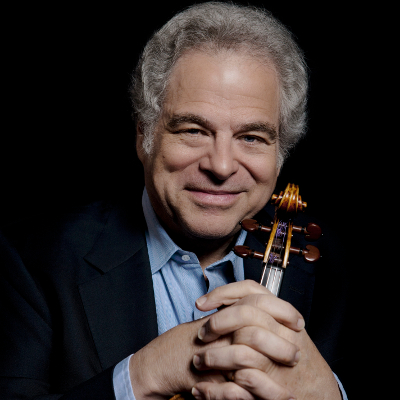Perlman recital offers mixed rewards at Kravis Center
Itzhak Perlman is one of the classical music world’s true icons. With a performing career now spanning half a century, numerous television appearances and forays into ethnic and crossover repertoire, Perlman is one artist who is nearly guaranteed to fill a concert hall and, indeed, the Kravis Center in West Palm Beach was packed for his recital on Monday afternoon, part of the Regional Arts Concert Series.
Once the most technically brilliant and immaculate of violin virtuosos, Perlman’s playing over the past decade has becomes less accurate and fastidious as in past times. Much of the old Perlman magic and charisma were on display at his matinee performance as well as some of the recurrent issues.
The first movement of Beethoven’s Violin Sonata No. 3 in E-flat Major was a problematical opener. Rohan De Silva, Perlman’s longtime recital partner, was agile and vivacious as ever at the keyboard but, despite a lowered piano lid, he often covered the violin line. Perlman’s intonation was not always precise and his once plush tone sounded wiry and muddy. He rebounded by shaping the noble melody of the Adagio with appropriate majesty. There were glimmers of the old Perlman in the final Rondo, the music sprightly with a touch of gypsy fire despite some fudged passagework in rapi sections.
Richard Strauss’ Violin Sonata in E-flat Major was one of the composer’s last original chamber works, composed in 1888. Despite some longeurs, this is unabashedly romantic music, richly chromatic and replete with sweeping thematic invention.
The score is a natural for Perlman and, for the most part, he gave a strong performance. Playing with a lean, focused tone, Perlman sailed through the grand gestures of the initial Allegro non troppo with passionate commitment and enthusiasm. The cinematic melodic writing of the Andante cantabile was delivered in shining tones and Perlman’s shaping of Strauss’ elongated lines was wonderfully pliant and idiomatic.
Still some passages in the violin’s highest reaches sounded off center and that carried over to the finale where fast sections were sometimes merely approximated. In spite of these brief technical glitches, Perlman brought sweeping fervor and his unique personal stamp to a score from the twilight of romanticism that was probably unfamiliar to much of his audience.
Fritz Kreisler turned Tartini’s “Devil’s Trill” Sonata into one of his typical Viennese bonbons and his romanticized arrangement fits Perlman like a glove. His sweet-toned, spacious reading of the Larghetto affectuoso set the pace. While some initial staccato sections were not always cleanly articulated, the final Allegro assai was indeed devilish, producing Perlman’s most dazzling playing of the afternoon.
A Perlman recital would not be complete without short violin chestnuts. Kreisler’s Sicilienne and Rigaudon in the Style of Francoeur was elegantly shaped and Tchaikovsky’s Song Without Words lithe with the schmaltz and intimacy of the salon.
The theme from Schindler’s List by John Williams, a Perlman perennial, was dressed in glowing tonal colors and imbued with sadness. While the rapid-fire Dance of the Goblins by Antonio Bazzini was not as flawless as in past Perlman performances, the showpiece provided a lively close to the afternoon.
Itzhak Perlman, with pianist Rohan De Silva, plays works by Beethoven, Grieg and Debussy 8 p.m. Wednesday at the Kravis Center in West Palm Beach. kravis.org; 561-832-7469 www. Perlman repeats the Beethoven-Strauss-Tartini program 8 p.m. Thursday at the Arsht Center in Miami. arshtcenter.org; 305-949-6722.
Posted in Performances
One Response to “Perlman recital offers mixed rewards at Kravis Center”
Leave a Comment
Tue Dec 17, 2013
at 11:31 am
1 Comment


Posted Dec 20, 2013 at 9:36 pm by Chaim Bachman
it must sometimes cause frustration being only a critic and not a world known musical performer: this shines through the wounded words regarding Itzhak Perlman’s latest recital.